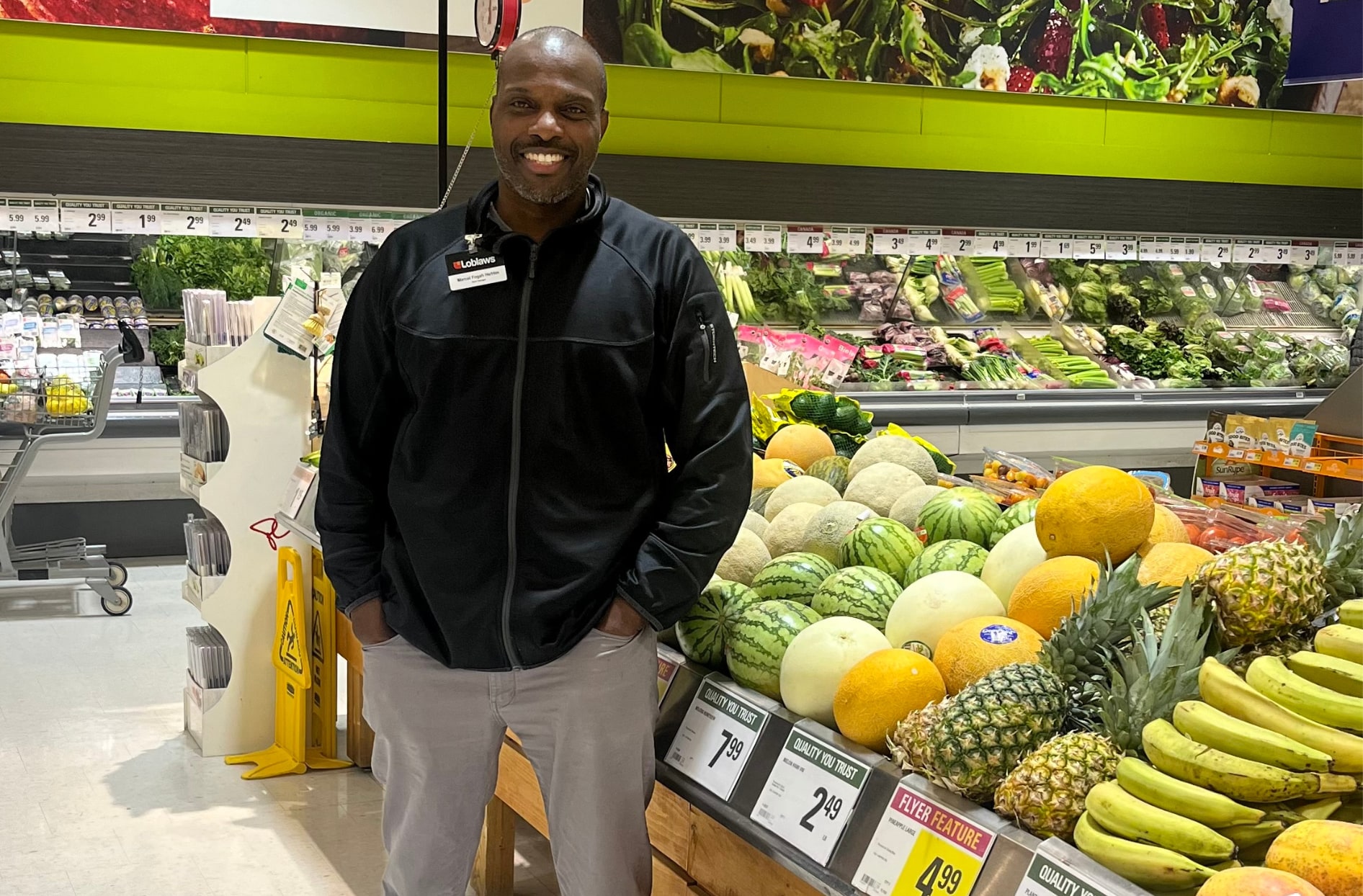Marcel explores ZooShare's impact on food waste reduction
November 30, 2023

The first time Marcel Fogah saw ZooShare’s biogas plant, which is located across from the Toronto Zoo, he didn’t know what he was looking at. The manager of a Loblaws store in Toronto was on a walk through a nature park with his wife when they stopped at a lookout and spotted the plant’s green-domed roof. But he didn’t realize what it was until last month, when he went on a field trip to the plant alongside several social media influencers to learn more about how Loblaw’s inedible food waste is turned into renewable power.
“It’s right in my backyard! This plant produces energy for 250 homes, but it really got me thinking. Is it possible that this is actually providing hydro for my house? Because I'm not too far away from there,” he says.
And it is possible; a renewable energy co-operative, ZooShare’s plant combines animal manure from the Toronto Zoo with food that’s no longer fit for human consumption in an oxygen-free environment, where bacteria can digest it. This process, known as anaerobic digestion, causes the release of methane gas, which the plant captures and uses to generate renewable electricity that feeds directly into the province’s power grid.
And, at least some of that food waste comes from 24 different Loblaw grocery stores in the GTA, which send food waste to the plant on a weekly basis. It’s all part of Loblaw’s effort to send no food waste to landfill by 2029 (which is one year ahead of its 2030 target). One part of eliminating food waste within operations is donating surplus food to food banks and food agencies, through our partnerships with Second Harvest and Food Banks Canada. But there’s another type of food waste that we don’t always think about: inedible food waste, used cooking oil and the gunk that gets caught in the store’s grease traps. In 2022, Loblaw stores sent 951,000kg of this type of waste to ZooShare instead of a landfill.
For Marcel, the trip to ZooShare’s plant made him think about food waste in a bigger way.
“This biogas facility is a smaller scale operation, but while touring the plant I learned that these types of facilities exist across the country, and that Loblaw uses anaerobic digestion as part of its overall strategy to keep food waste out of landfills.”
But his most important takeaway is that small-scale operations can have a big impact—which is why he’s thinking more about how he can reduce food waste in his own store, including through more strategic ordering to closely align with consumer demand and reduce spoilage.
“I think it's important because if we want to be around on this planet for any length of time, we all have to do our part,” Marcel says. “If we can take something like produce waste and convert that into something that could be beneficial for the planet and for the community, then that's a win-win.”

